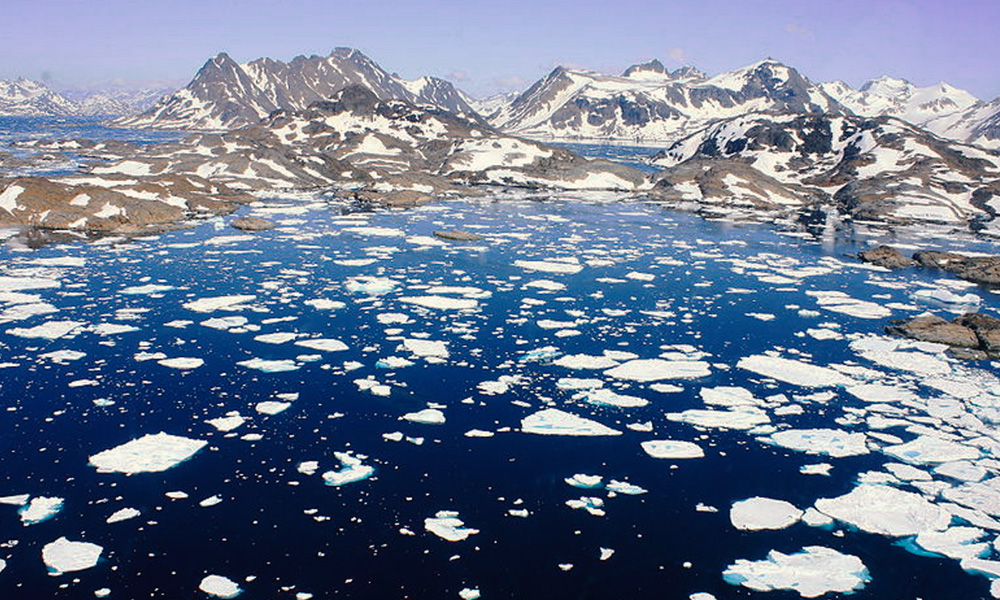
Image Credits: Wikimedia
India
Greenland's Ice Sheet Melted At Record One Million Tonnes Per Minute In 2019: Study
 |
|The study found that in 2019 Greenland's ice sheet lost an annual record of 532 billion tons of ice, with 223 billion tons of ice lost in July alone.
Greenland lost a record amount of ice in 2019, a study published in the journal Communications Earth and Environment on Thursday, August 20 has said.
The study found that in 2019, Greenland's ice sheet lost an annual record of 532 billion tons of ice, with 223 billion tons of ice lost in July alone. Meanwhile, between 2003 and 2016, Greenland lost an average of 255 billion tons of ice per year.
The researchers from Germany also found that the amount of ice lost in 2019 was 15 per cent higher than the previous worst year on record, which was 2012.
"We have documented another record loss year for Greenland. What this shows is that the ice sheet is not only out of balance but it's increasingly likely to produce more and more extreme loss years," Ingo Sasgen, a glaciologist at the Alfred Wegener Institute for Polar and Marine Research and co-author of the study, was quoted by CNN.
Greenland, an autonomous territory of Denmark, is the world's largest island and is located between the Arctic and Atlantic oceans. Greenland ice sheet melt is one of the largest contributors to the rise in sea-level and currently contributes to an increase of 0.76 mm every year.
The scientists said that extreme ice loss in 2019 was due to "blocking patterns" of weather which resulted in having warm air over Greenland for longer periods.
"[2019 was] really shocking and depressing in terms of the numbers. But it's also not very surprising, because we had other strong melt years in 2010 and 2012, and I expect we will see more and more. The real message is that the ice sheet is strongly out of balance," Sasgen was quoted by The Guardian.
"If we look at the record melt years, the top five occurred in the last 10 years, and that is a concern. But we know what to do about it: reduce CO2 emissions," Sasgen added.
Also Read: Arctic Sea Ice Could Disappear Into Ocean In Next 15 Years: Study